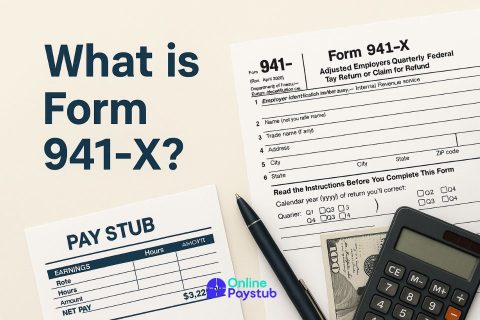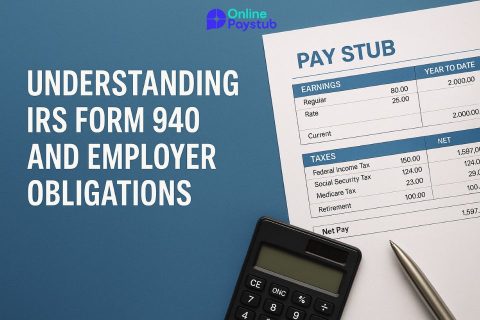GoFundMe is one of the most widely used crowdfunding platforms in the world, allowing individuals and organizations to raise money for personal, medical, charitable, or community-based causes. Launched in 2010, GoFundMe has facilitated billions of dollars in donations across a wide range of campaigns.
Overview of crowdfunding on GoFundMe
Crowdfunding through GoFundMe involves setting up a public donation page where campaign organizers share their story and invite people to contribute financially. These pages often include:
- A fundraising goal
- A detailed description of the need or cause
- Photos or videos
- Real-time updates and donor comments
Donors can contribute using credit cards, debit cards, or PayPal, and contributions can be made anonymously or publicly. GoFundMe typically processes payments through third-party systems like Stripe or PayPal, and funds are either withdrawn by the organizer or routed directly to a designated charity (depending on campaign type).
Types of campaigns: personal vs charity
There are two main types of fundraising campaigns on GoFundMe:
- Personal Campaigns
These are created by individuals or groups to raise funds for personal needs—such as medical bills, emergency expenses, memorial services, tuition, or life events. In personal campaigns, the money is transferred directly to the organizer’s bank account.- Tax status: These donations are typically considered personal gifts and are not tax-deductible.
- Certified Charity Campaigns
These fundraisers are linked directly to verified nonprofit organizations, often via GoFundMe’s partnership with PayPal Giving Fund. Donations go straight to the charity, not the organizer.- Tax status: These donations may be tax-deductible if the recipient organization is a registered 501(c)(3) nonprofit.
Understanding which type of campaign you’re donating to is critical for determining tax implications.
Can You Claim GoFundMe Donations on Your Taxes?
Whether or not your GoFundMe donation is tax-deductible depends entirely on who is receiving the funds. The IRS treats charitable giving differently based on the legal status of the recipient.
Donations to individuals vs certified charities
- Donations to individuals:
Most GoFundMe pages raise money for people, families, or small groups facing personal challenges. In these cases, the IRS considers your gift a personal contribution, not a charitable donation. That means:- You cannot deduct the donation on your taxes.
- The recipient usually does not owe taxes on the money received, as it’s treated as a gift.
- Donations to certified charities:
If the fundraiser is explicitly linked to a registered nonprofit (typically using GoFundMe’s PayPal Giving Fund integration), your donation may qualify as a charitable deduction on your federal tax return. You should receive a donation receipt from PayPal Giving Fund or GoFundMe.org confirming your gift.
The role of 501(c)(3) status
For a donation to be tax-deductible under U.S. law, the recipient must be a qualified 501(c)(3) charitable organization, which is:
- Officially registered with the IRS
- Operated exclusively for charitable, religious, educational, or scientific purposes
- Eligible to receive tax-deductible donations under IRS guidelines
To verify if a GoFundMe campaign is linked to a certified charity, look for:
- A note that the fundraiser is managed by or on behalf of a registered nonprofit
- Receipt issued by PayPal Giving Fund or GoFundMe.org
- Presence of the organization’s EIN (Employer Identification Number)
If you’re unsure, you can search the organization’s status on the IRS Exempt Organizations Search.
How to Make a Tax-Deductible Donation on GoFundMe
If your goal is to support a good cause and receive a tax deduction, it’s essential to ensure your donation on GoFundMe is going to a qualified charitable organization. While many campaigns are emotionally compelling, not all meet the IRS criteria for tax-deductible donations.
Finding certified charity campaigns
To make a tax-deductible donation through GoFundMe:
- Search for charity fundraisers: Use the GoFundMe platform’s “Certified Charity” section or filter for nonprofit campaigns.
- Check for nonprofit verification: Look for confirmation that the campaign is directly tied to a 501(c)(3) registered charity.
- Look for clear labels: Tax-deductible campaigns often show:
- “Certified Charity”
- “Powered by PayPal Giving Fund”
- The name and EIN (Employer Identification Number) of the nonprofit
These fundraisers bypass the individual organizer and send funds directly to the verified charity.
Using the PayPal Giving Fund
When donating to a certified charity campaign on GoFundMe, your donation is typically processed by PayPal Giving Fund, a 501(c)(3) donor-advised fund. Here’s how it works:
- Donation handling: PayPal Giving Fund collects your donation and disburses it directly to the intended nonprofit.
- Tax receipt: You receive an official donation receipt via email from PayPal Giving Fund, which can be used to claim a deduction on your tax return.
- No fees: 100% of the donation typically goes to the nonprofit, as GoFundMe and PayPal do not charge transaction fees on these charity campaigns.
This system ensures transparency, eligibility, and proper tax documentation for your donation.
When Are GoFundMe Contributions NOT Tax Deductible?
Not all donations on GoFundMe are eligible for tax benefits. In fact, most personal campaigns do not qualify as charitable contributions under IRS rules.
Personal gifts and non-qualified campaigns
- Donations made to individuals or families—such as for medical bills, memorial costs, rent, or school tuition—are classified as personal gifts.
- These are not deductible for the donor.
- However, recipients typically don’t pay income tax on these amounts (they’re considered gifts, not income).
Even if the donation feels charitable in nature, it doesn’t meet IRS requirements unless the funds go to a qualified 501(c)(3) nonprofit.
Examples of non-deductible donations
- Giving $500 to a neighbor’s cancer treatment fund
- Donating to a campaign for a student’s tuition
- Contributing to travel expenses for a volunteer mission (unless handled through a certified organization)
- Fundraising for a family impacted by a natural disaster (unless routed through a nonprofit)
In all these cases, while your contribution is generous, it is not considered tax-deductible unless routed through a verified nonprofit partner.
What Is the IRS Rule on GoFundMe and Taxes?
The IRS treats crowdfunding differently based on whether you’re the donor or the recipient—and whether the donation meets the definition of a charitable contribution.
Reporting requirements: 1099-K and gift tax
- Donors: If you give money to a personal GoFundMe campaign, it is generally treated as a gift. However, if your total gifts to an individual exceed the annual exclusion limit (currently $18,000 per recipient in 2024), you may need to file Form 709 to report the excess gift to the IRS.
- Recipients: If a campaign raises a significant amount of money (especially through third-party processors like PayPal or Stripe), the organizer may receive a Form 1099-K.
- The 1099-K reports gross receipts if they exceed $5,000 in 2024, dropping to $2,500 in 2025, and eventually to $600 in 2026.
- This form is also sent to the IRS, and recipients must be prepared to justify that funds are gifts, not income.
If donors receive goods, services, or promotional value in exchange for the donation, it may be classified as a sale, and therefore, subject to income tax for the organizer.
Deduction limits and AGI percentage caps
If you’re donating to a qualified charity through GoFundMe:
- You may deduct up to 60% of your Adjusted Gross Income (AGI) if the donation is in cash.
- Limits drop to 30% of AGI for donations of appreciated property or to certain non-cash charitable entities.
- If you exceed these limits, you can carry forward the unused deduction for up to five years.
To claim a deduction, you must itemize deductions using Schedule A on Form 1040. Keep all receipts and documentation from PayPal Giving Fund or GoFundMe.org to substantiate the claim.




No comments to show.